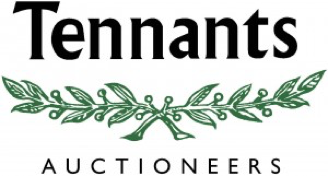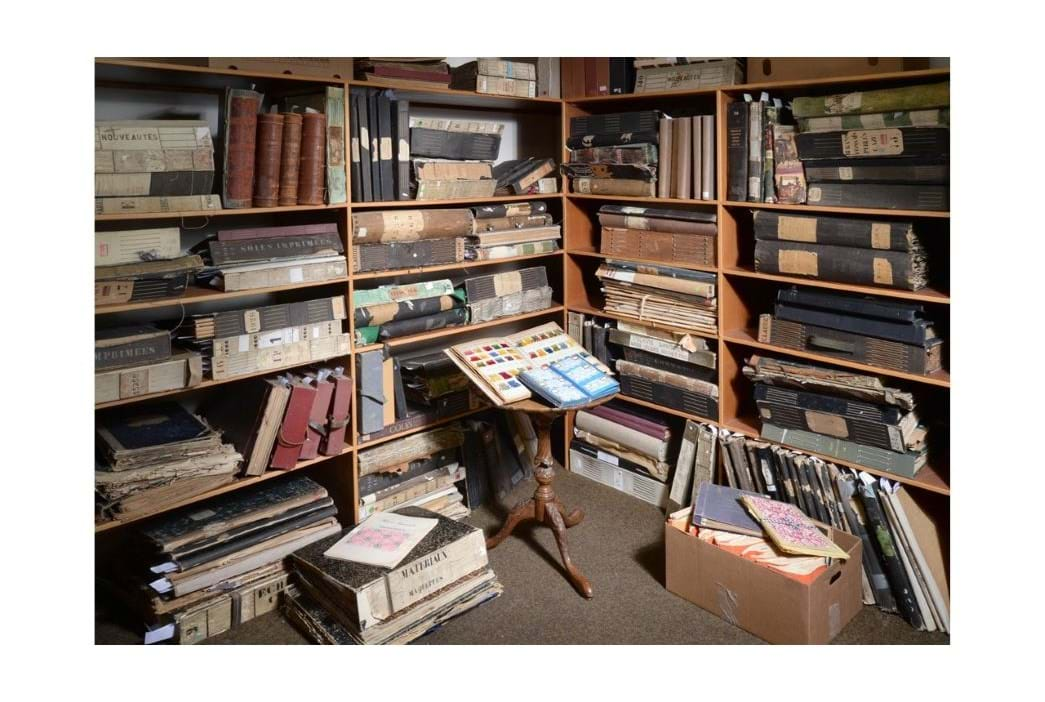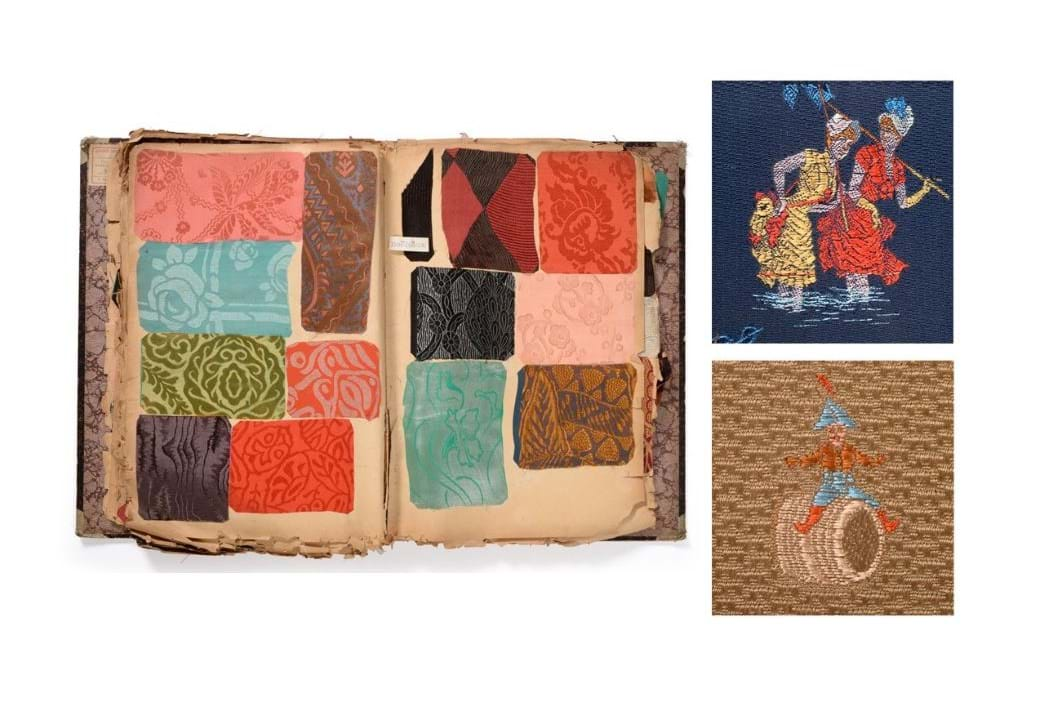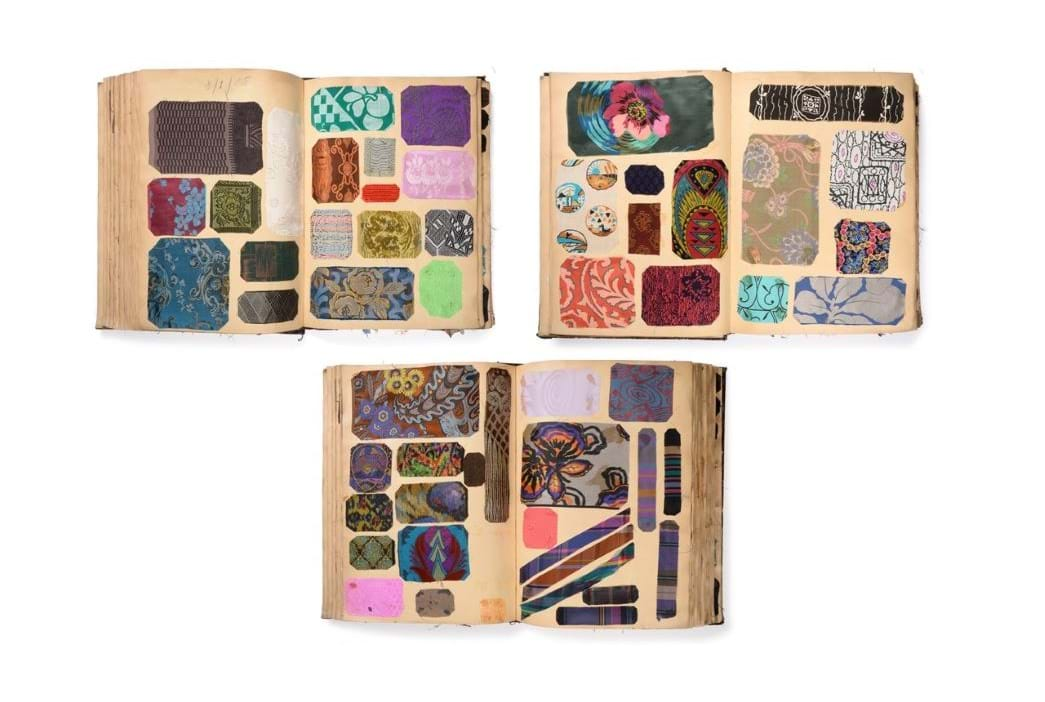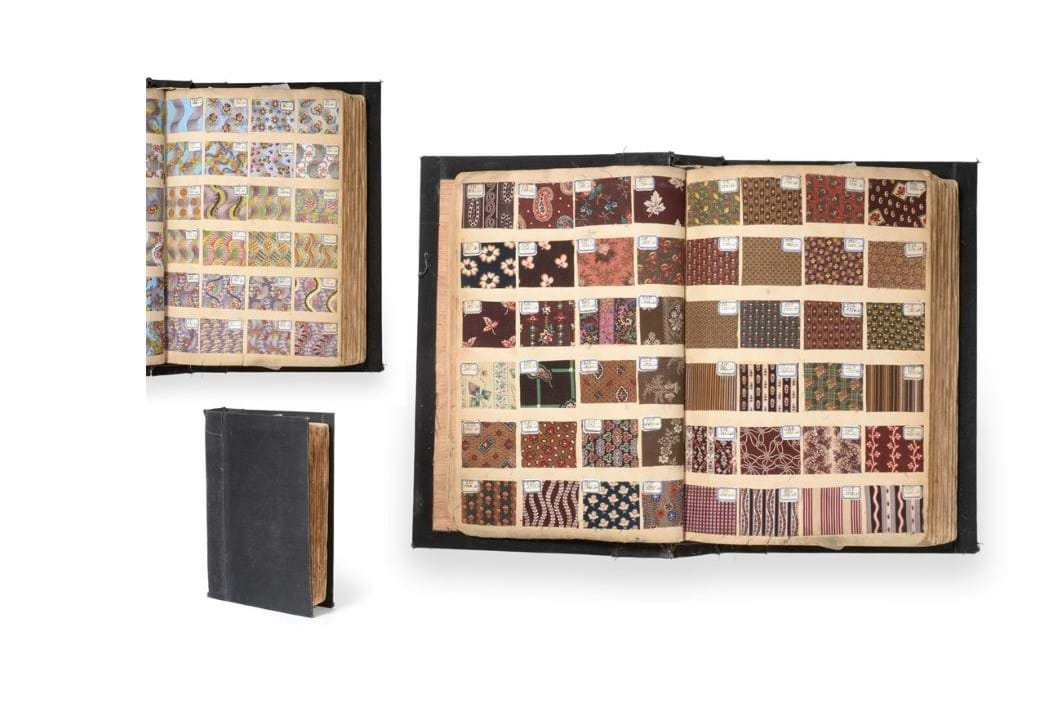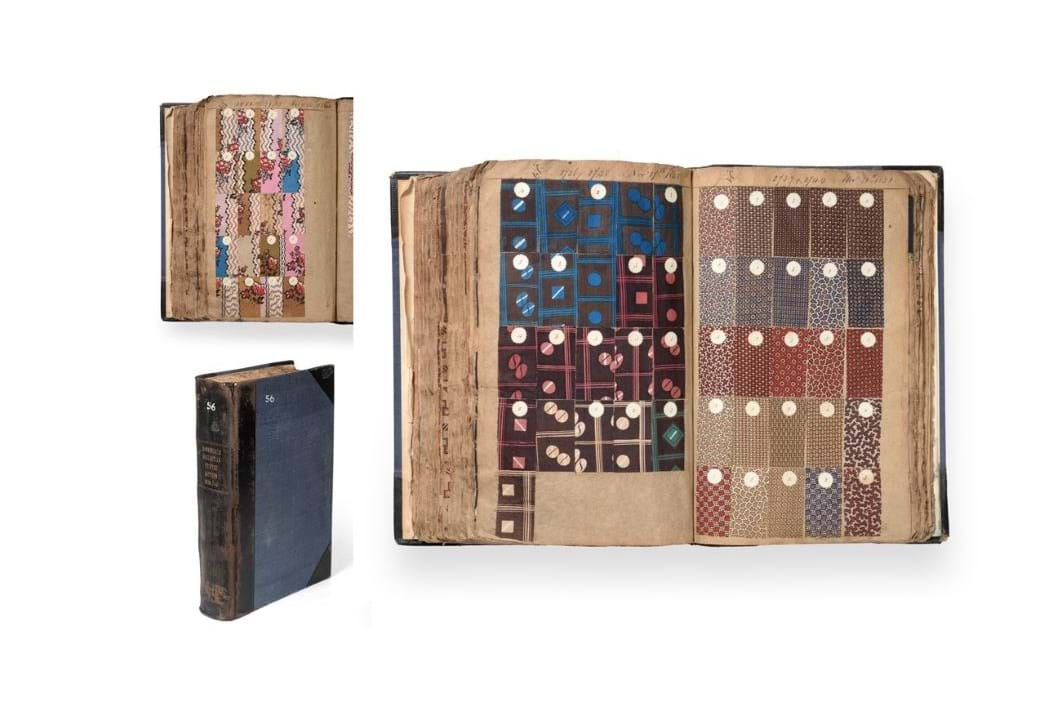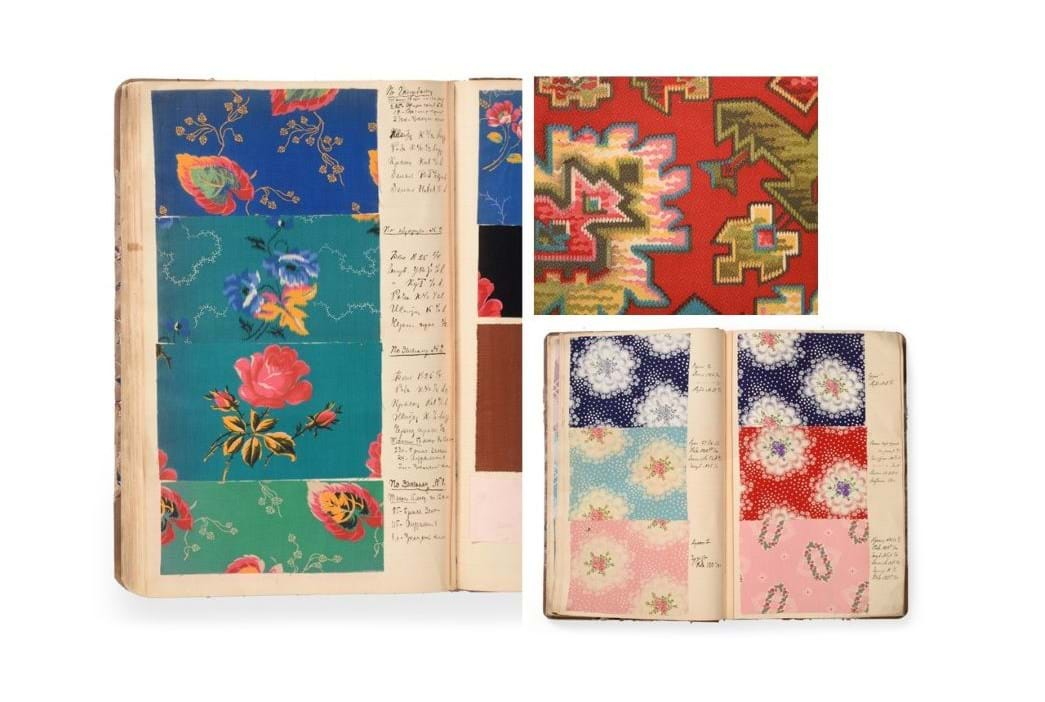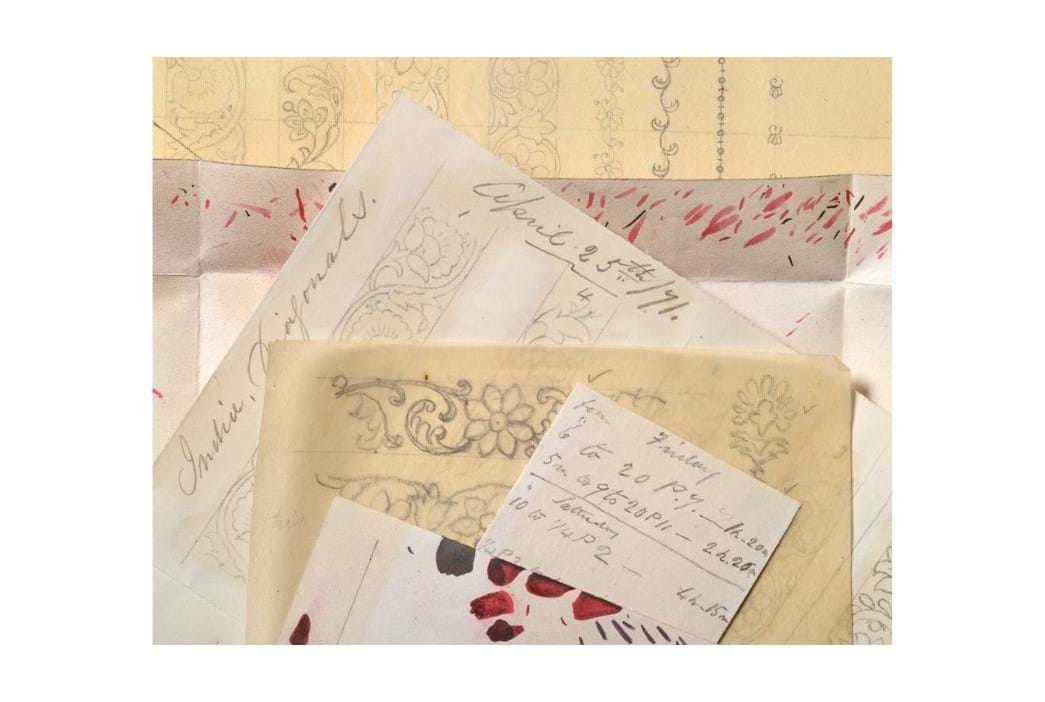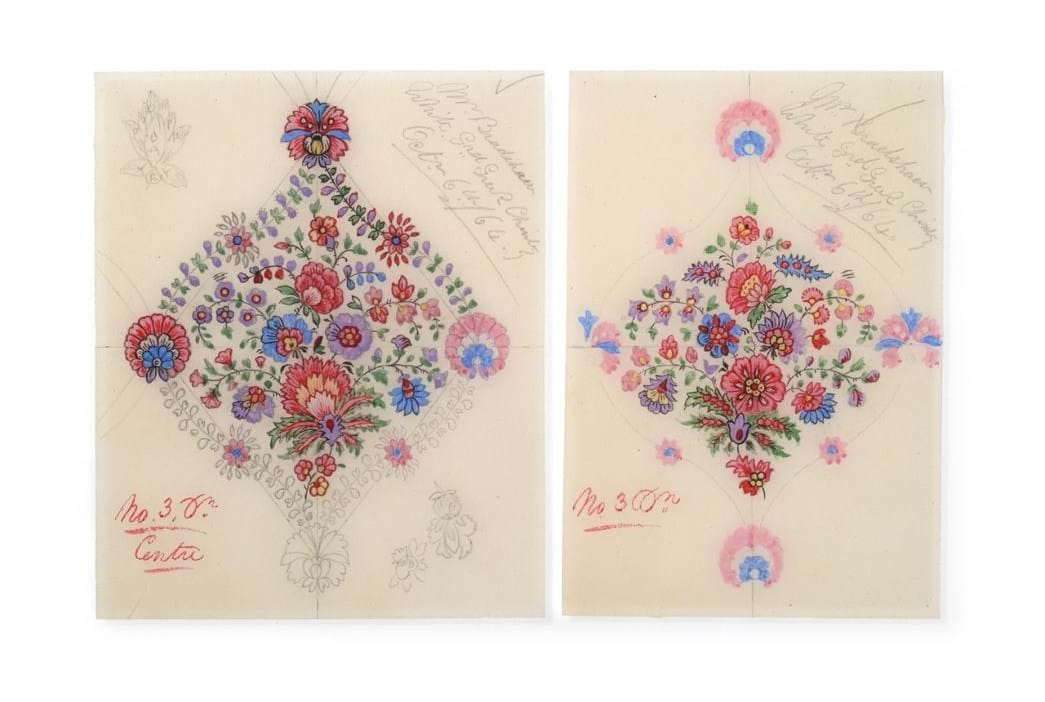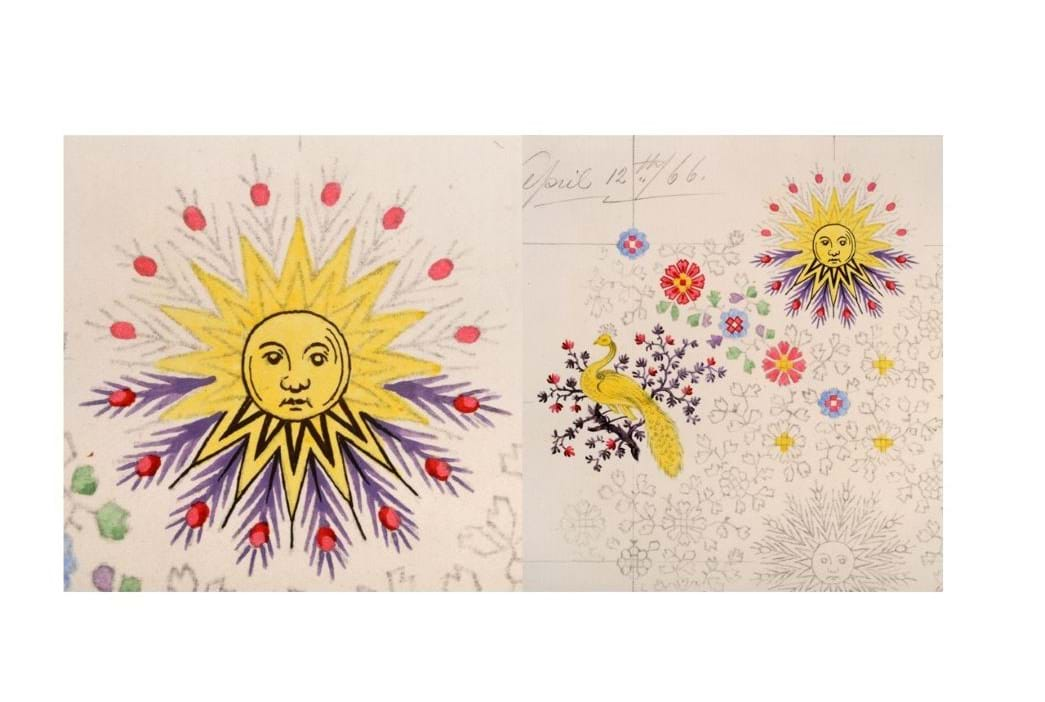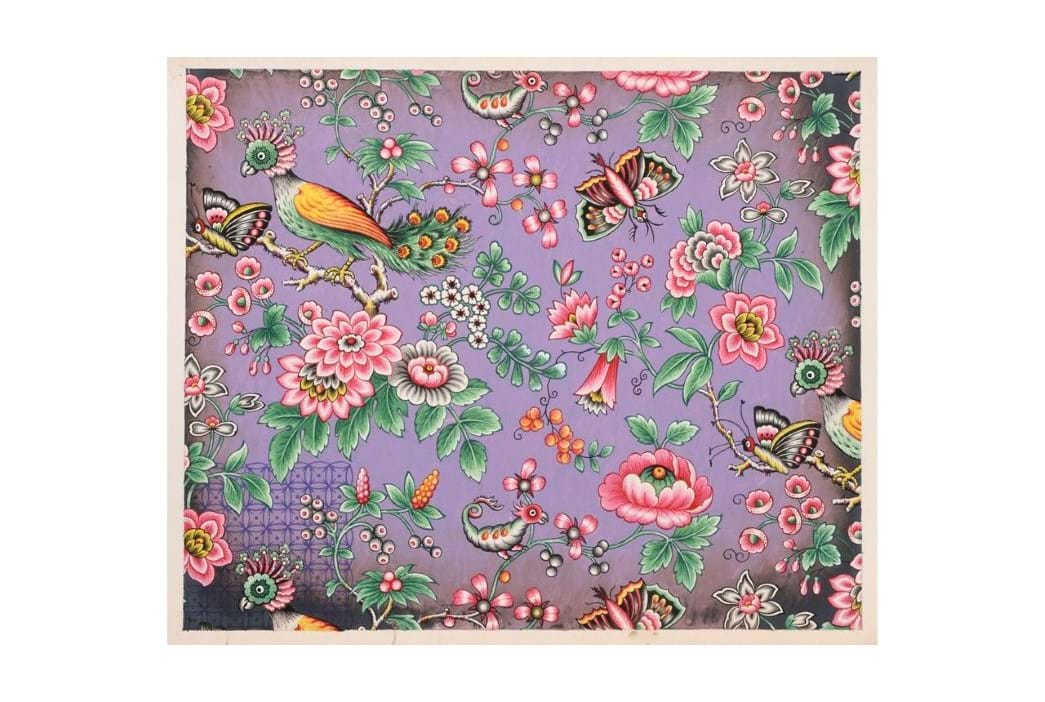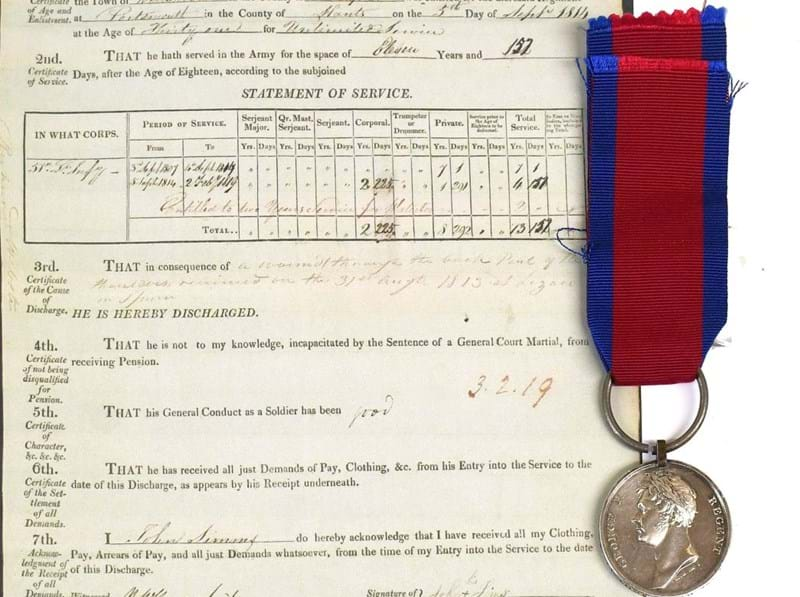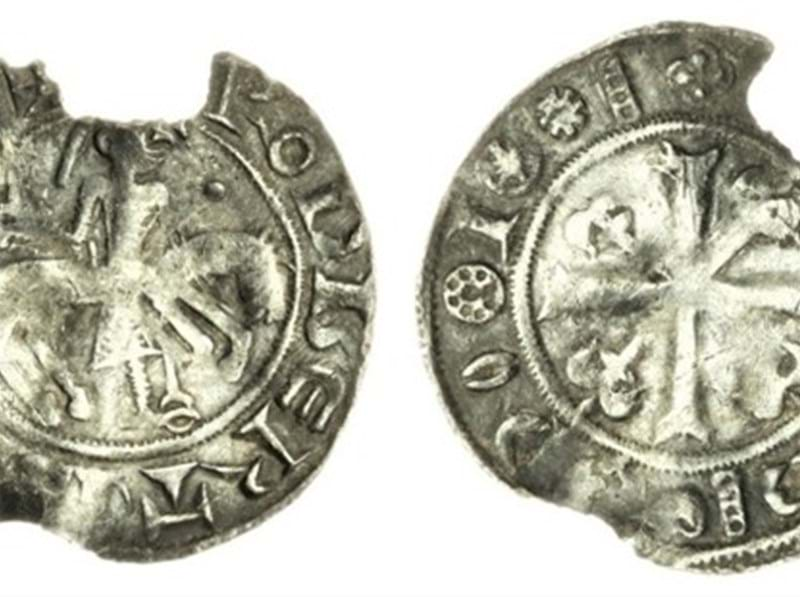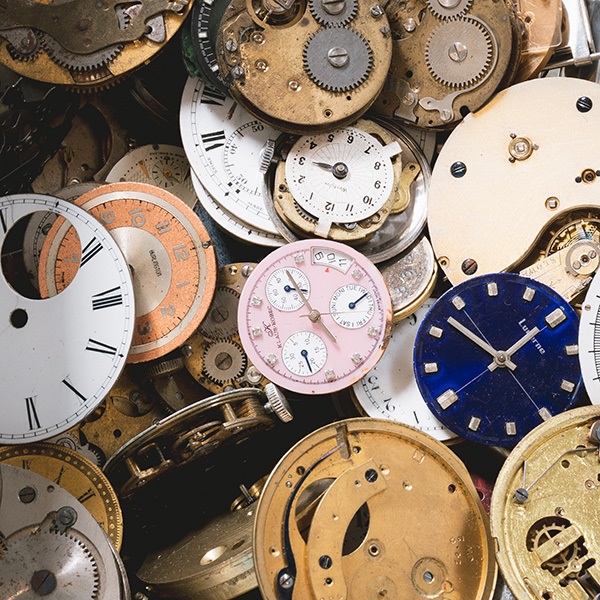The Pattern Sale is a celebration of colour, fabric and the extraordinary wealth of design created over the span of a century, comprising two private collections, A Private Collection of Fabric Sample Books and The John Barker Archive. The collections will form the basis of a sale which will take place on Friday 20th November.
A PRIVATE COLLECTION OF FABRIC SAMPLE BOOKS
The body of The Pattern Sale is made up of over 170 fabric and textile sample books, which have been amassed over 30 years by the owner for historical reference and design inspiration and contain nearly 130,000 individual fabric samples.
The Collection charts the history of design, fashion and the European textile industry through a period of extraordinary growth and change. It offers an incredible source of inspiration for designers today, as well as being of significant historical interest. All types of fabric and embellishments are included in the books from fine silks, velvets and heavily woven fabrics for evening gowns to printed cottons, chiffons and embroidered fabrics from the 1920s and 1930s.
Mainly French in origin, the books date from the early 19th century through to the 1940s, with the bulk of the collection dating from 1880-1920. A handful of books hail from Russia and Germany, and one book comes from a British manufacturer in Rossendale, Lancashire. Only two manufacturers are actually named on the books. Firstly, Claude Frères & Cie of Paris, which was established in 1855 by two brothers and grew to international importance, supplying the booming US fashion industry in the early 20th century. Secondly are books from Bianchini Férier, which was founded in Lyon in 1888 and saw almost immediate success. By 1909 it had offices in Paris, London, Brussels and New York, and commissioned artists such as Raoul Dufy to produce designs for its wares. The company created designs and supplied fabric for the likes of Givenchy, Balenciaga, Chanel, Dior, Yves Saint Laurent and Nina Ricci.
The majority of the anonymous books appear to hail from Lyon, either having Lyon labels or having the marks of Lyon papeterie or stationary shops. Lyon was the epicentre of the textile industry in France and had held an important position for centuries. From the late 15th century, Lyon was the centre of the silk trade in France, perfectly positioned on the banks of the Saône River in the south-east of the country, with easy access to the Italian silk trading centres. In the 17th century it was the European centre of silk and had developed its own styles and techniques. By 1620, 10,000 silk looms were in the city and a thriving supporting industry of spinners, dyers, papermakers and merchants had grown up around the city. The early 19th century saw great technical advancements, such as the invention of the Jacquard loom in 1801 and the advent of synthetic dyes which produced varied and vibrant colours. The industry strove ahead, and by 1870 100,000 looms were in operation.
The textile industry in France from 1850-1950 was known as the Second Industrial Revolution; Paris became the hub of textile design, colour forecasting and trend setting. By the 1920s and 30s, sample books were employed to communicate new designs, trends and the latest textiles around the world.
The books will be sold either singularly or in small groups with estimates ranging from £150-250 to £3,000-5,000 plus buyer’s premium.
